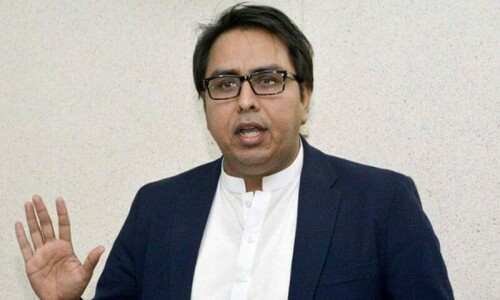LAHORE: The Central Development Working Party (CDWP) is likely to approve today (Tuesday) the Lahore’s first Water and Wastewater Management Project — construction of clean drinking water treatment plant near Bambawala-Ravi-Bedian (BRB) Canal.
Under the project, the Water and Sanitation Agency (Wasa) will ensure provision of clean drinking water to around 1 million consumers (approximately 10m people) living in north Lahore, especially those residing in localities near the GT Road, including Baghbanpura, Mughalpura and Shadi Pura, after treatment of 100 cusecs of canal water from BRB that will be made available by the irrigation department.
“Since the Provincial Development Working Party (PDWP) of the planning & development department had approved this Rs19.9 billion project in March, this year, the Punjab government forwarded it to the federal government in June for approval. So, now, this project will be taken up by the central development working party (CDWP) in its meeting to be held on Sept 3, on Tuesday (today) in Islamabad. And we are much hopeful that the CDWP would approve this and send it to the Executive Committee of National Economic Council (Ecnec) for final approval,” a senior Wasa official explained while talking to Dawn on Monday.
Envisaged by Wasa about two years ago, the Punjab and federal governments had approved its project concept-I (PC-I) during the last quarter of 2017. After approval, the PC-1 was shared with the Asian Infrastructure Investment Bank (AIIB) that finally agreed to fully fund it through a soft loan. Later, the pace of work on the project’s approval by the Punjab government for its execution slowed down because of the pre-election political uncertainty in 2018. Similarly, it remained slack during the whole year since the new government took time to understand the routine business of the government. However, it finally took up various pending issues and its PDWP approved this important project in March 2019. It had sent the project to CDWP (federal government) for approval in June, this year. And finally the CDWP included it in agenda items of its meeting scheduled to be held on Tuesday (today).
Besides this, the project was stalled since long as the authorities thought its cost could be reduced if Wasa was supplied water from the BRB Canal at Batapur rather than its point situated across the River Ravi. But, later, the department in January, this year agreed to allow Wasa to get the canal water from the Batapur (GT Road) that reduced the cost of laying of 7km-long or so pipelines. The department had earlier selected the canal’s point that comes after crossing of the Ravi but the experts went against it and suggested Batapur point.
“Of the total cost (Rs19.9 billion), Rs5 billion would be given to irrigation department for making arrangements to supply water to the treatment plant, which would be established at Bhaini village (near Batapur) after pumping it out from the BRB Canal. The department would also get some repair/upgradation work done at Siphon within this budget. The remaining Rs14.9 bn would be spent for establishing new infrastructure (laying pipes, new connections etc),” the official added.
To a question, he said over 33 litres of the treated water would cost Rs1 to Wasa but the agency would supply 100 litres of drinking water to the consumers on subsidized rates of Rs1. The approximate quantity to be supplied to consumers through the new arrangement would be 50 million gallons per day, he claimed. To another question, he said the water to supplied would be just like mineral water and would contain certain amount of chlorine. There would be no chance of presence of arsenic in that water, he claimed.
“The new arrangement would also reduce burden on the tube-wells supplying water to the people in the target areas. Once this project becomes functional, the tube-well operation would squeeze to one hour only from 14-16 hours daily. The tube-wells would only be operated for 12-14 hours during December and January (21 days) — during the canal’s closure for annual desilting campaign. Similarly, it would help us control the depletion of underground water,” the official maintained.
Talking about Phase-2 of the project that would focus on the areas near Thokar, he said Wasa would not only supply clean drinking water to a large population living in southern Lahore, but also ensure return of 100 cusecs to the irrigation department after treatment of the 100 cusecs of sewage or wastewater. For this purpose, a water treatment plant would be installed at Qatar Band Road (near Thokar) where Wasa would treat 100 cusecs of wastewater and then put it into the Lahore’s main canal. “In this way we will return the water we would get from irrigation department,” he added.
Published in Dawn, September 3rd, 2019













































Dear visitor, the comments section is undergoing an overhaul and will return soon.